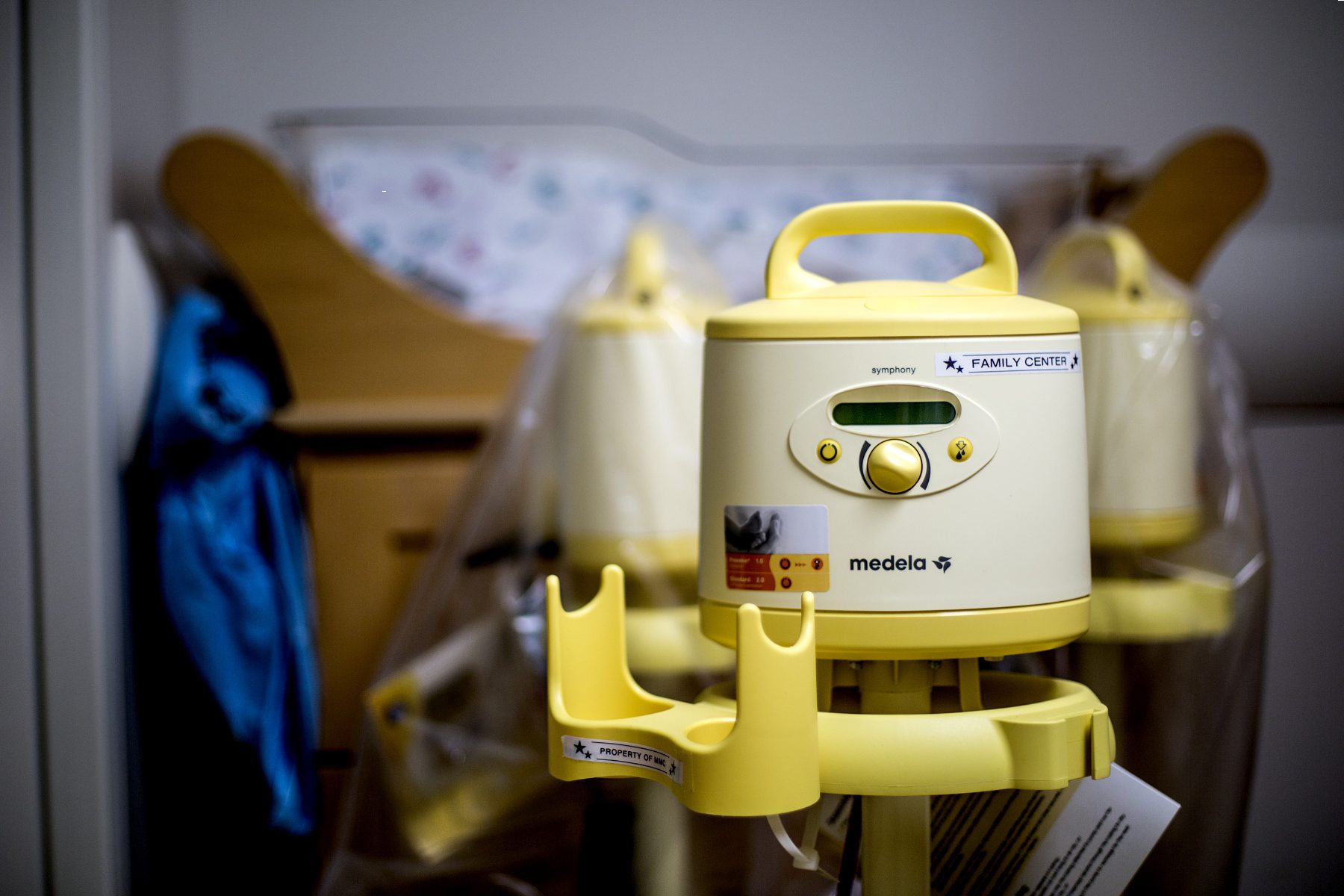Only half of the 180 Department of Veterans Affairs (VA) medical centers across the country currently have a designated area for nursing, or lactating, parents. And these designated spaces are for employees, not the veterans or their partners receiving care. Bipartisan legislation introduced on Thursday aims to change that.
In an exclusive to The 19th, Sens. Jacky Rosen of Nevada and Lisa Murkowski of Alaska announced that they are introducing the “Lactation Spaces for Veteran Moms Act,” which would require every VA medical facility to provide at least one designated space for veterans and their partners who are nursing — one that is not a bathroom.
“All mothers deserve a private, hygienic place to nurse their children,” Rosen said in a statement. “We can’t continue to allow for only half of VA medical centers to have a designated nursing room open to veterans and their partners. Mothers who are veterans have sacrificed so much for our country, the least we can do is give them privacy when they nurse.”
The bill defines lactation spaces as hygienic places, separate from bathrooms, that are shielded from view, free from intrusion, accessible to disabled individuals, easy to locate and clearly identified with signage.
Women are the fastest-growing segment of the military and account for about 10 percent of the veteran population, with nearly two million women veterans, more than a quarter of whom are women of color. According to a 2018 report from the VA’s Office of Health Equity, about 4,000 veterans deliver babies using their VA maternity benefits every year. And demand for maternity care has increased exponentially in recent years: Since 2000, the number of deliveries paid for by the department has increased 14-fold.
A spokesperson from Rosen’s office said this bill aims to meet a growing demand and make VA medical centers more accessible to women veterans, even though women veterans often opt for private medical care.
“We should be doing all we can to support mothers and their babies by providing greater access to nursing rooms in public places,” Murkowski said in a statement. “As the number of women veterans rapidly increases, we should make certain that we have adequate support services for them.”
A companion bill, introduced by Rep. Elaine Luria of Virginia, in the House passed unanimously in May. Luria, a 20-year Navy veteran and chair of the veterans affairs subcommittee on disability assistance and memorial affairs, also co-sponsored 2019 legislation that was signed into law requiring certain public buildings with public restrooms to provide lactation spaces.
The 2022 bills introduced in the House and Senate codify the requirement for VA facilities, specifically.
A spokesperson in Rosen’s office said they anticipate widespread bipartisan support in the Senate and, if the measure passes, the Department of Veterans Affairs will have two years to implement nursing and lactation spaces at its 180 medical centers.







